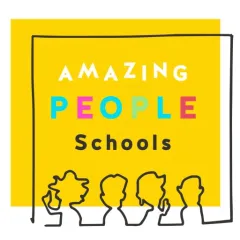![8b49a0c98ec527ed729a61a1076a0e81c399e2a3[1]](https://about.amazingpeopleschools.com/wp-content/uploads/2023/07/Jason-Arday-11.png)
Jason Arday
“I knew I didn’t necessarily have huge amounts of talent, but I knew how badly I wanted it and I knew how hard I wanted to work.”
Who Am I?
Jason Arday is a British sociologist, writer and fundraiser. He was born and raised in South London. At the age of three, he was diagnosed with autism, which is a condition that can affect how a person understands, communicates or interacts with others. He also had global developmental delay, which means he was delayed both mentally and physically in his development. This led to him having to learn sign language, as he did not learn to speak until he was 11 years old. He didn’t start reading and writing until he was 18 years old.
He left school with two GCSEs in PE and Textiles. His self-belief urged him forward to continue his studies. He worked in several shops to fund himself through several degrees and a PhD. Jason had to use sign language to communicate until he could speak; in this way, he learned to overcome his communication barrier with others.
What Am I Known For?
While studying for his PhD, Jason wrote on his bedroom wall, “One day I will work at Oxford or Cambridge”. In 2023, this became true, and Jason is now the youngest-ever Black professor at Cambridge University.
Jason has become well-known for his research on racism, inequality and education. His main area of work is looking at the UK History curriculum and how it is taught. He focuses on how it often lacks covering the contributions of Black British history. He has called for a review of the curriculum in terms of how we teach about colonialism. This would give students a more transparent overview of colonial pasts and how they still affect society today.
He is also using his position to encourage others and to help change the system to take a united approach to support equality, diversity and inclusion, especially of Black and ethnic minority students.
How About You?
Jason uses his position to help others like him to achieve – it can be difficult to put others ahead of yourself and your own ambitions. When might you be able to demonstrate this level of humility at home or school?
When you have experienced something difficult, consider what actions you took to overcome and persevere to reach your end goal.
What are the three main ways you remain resilient? Can you draw a poster of your ideas and keep it close by for the next time you have a setback?
Other Amazing People (you can find them on the website)
Many amazing neurodiverse people have made major contributions to our world. For example, Thomas Edison, the prolific inventor with no less than 2332 patents to his name – explore his amazing story on the website. He had a hearing and learning disability that limited his education, yet he went on to overcome these and worked hard using his perseverance and curiosity. He said, “Genius is 1% inspiration, 99% perspiration”.
Edison has been directly responsible for inventions that we possibly couldn’t live without today, such as recording, videography, telegraphy and much more.
Other Useful Resources (available on the website)
Amazing People Schools has a wide range of resources to support Equality, Diversity and Inclusion. These include Amazing Neurodiverse People and Amazing Black Britons.
Subscribers can find these helpful resources by logging in. If you are not a subscriber, you can access these resources, and many more, by starting a free trial.
Photo: University of Cambridge
